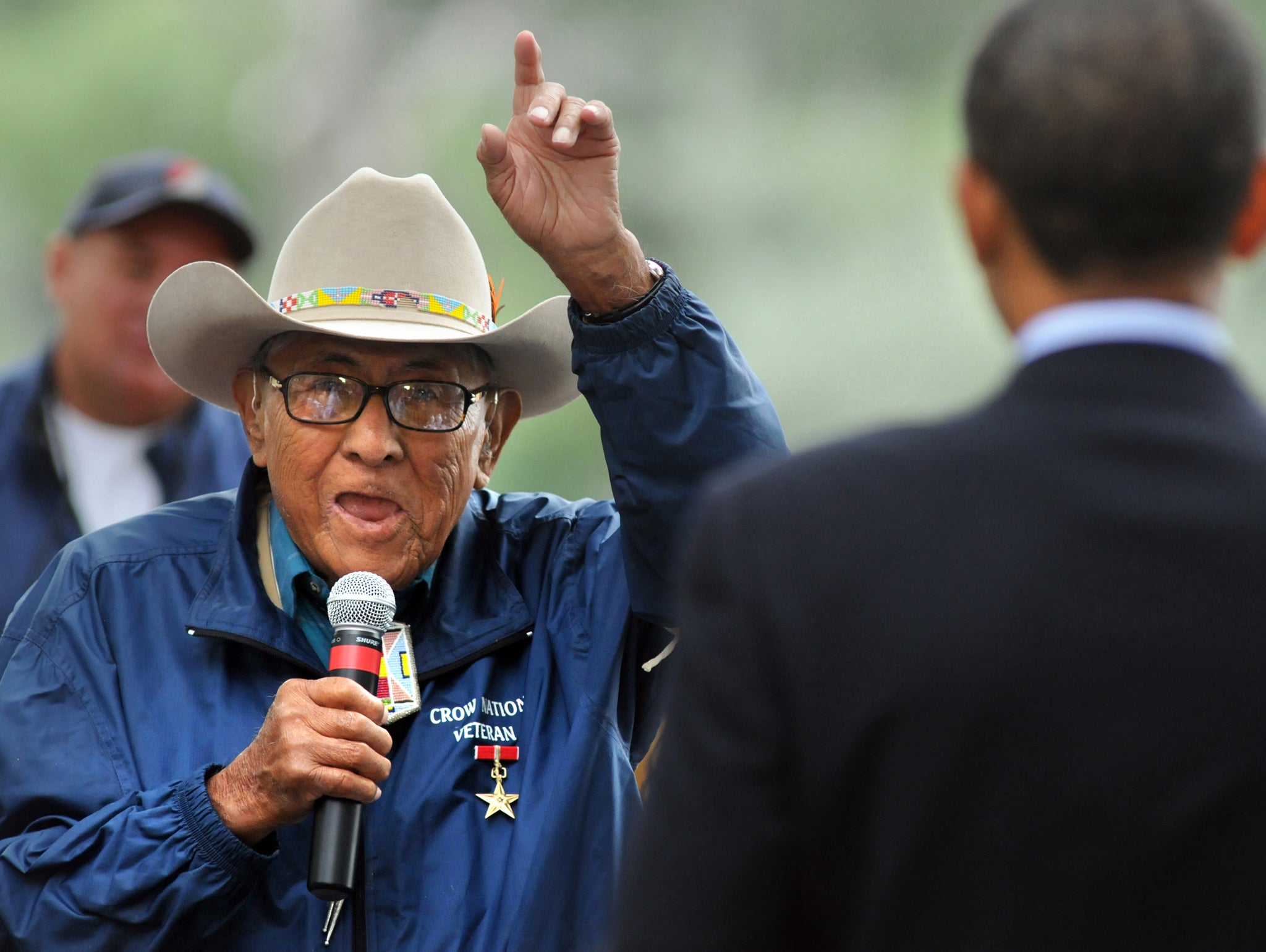Joe Medicine Crow dead: Revered Native American war chief and historian dies at 102
Medicine Crow was the last link to the Battle of Little Bighorn.

Your support helps us to tell the story
From reproductive rights to climate change to Big Tech, The Independent is on the ground when the story is developing. Whether it's investigating the financials of Elon Musk's pro-Trump PAC or producing our latest documentary, 'The A Word', which shines a light on the American women fighting for reproductive rights, we know how important it is to parse out the facts from the messaging.
At such a critical moment in US history, we need reporters on the ground. Your donation allows us to keep sending journalists to speak to both sides of the story.
The Independent is trusted by Americans across the entire political spectrum. And unlike many other quality news outlets, we choose not to lock Americans out of our reporting and analysis with paywalls. We believe quality journalism should be available to everyone, paid for by those who can afford it.
Your support makes all the difference.Native American historian, activist, and World War II veteran, Joseph Medicine Crow — the last surviving Plains Indian war chief — has died.
Medicine Crow, 102, died Sunday morning in a Billings, Montana, hospice center, according to the Big Horn County Coroner. Services are expected to be announced Monday.
The official historian of the Crow tribe, Medicine Crow earned his master’s degree in anthropology from the University of Southern California in 1939, making him the first in his tribe to do so.
“He was my role model, a trailblazer in his own right. He set the pace for others to emulate what he was doing,” his son, Ronald Medicine Crow, told the Billings Gazette. “A lot of graduates have said that my dad was an inspiration to not stop their education and to go on to college.”
Medicine Crow, known to the Crow Tribe as "High Bird," attained war chief status by completing four war deeds while serving in the Army during World War II, the Indian Country Today Media Network reported. He was to lead a war party, stealing horses from an enemy camp, touch the first fallen enemy, steal a weapon from the enemy without killing them — all of which he achieved while a scout for the 103rd Infantry in Europe.
President Barack Obama awarded Medicine Crow with the Medal of Freedom in 2009.
“His contributions to the preservation of the culture and history of the First Americans are matched only by his importance as a role model to young Native Americans across the country,” the White House statement said.
A key to the preservation of history, Medicine Crow had heard firsthand accounts of the Battle of Little Bighorn from his grandmother's brother, a scout who stood alongside General George Custer, according to the the Associated Press.
While working on his graduate degree at USC, Medicine Crow took a job in the script department for a film about Little Bighorn, They Died With Their Boots On. The Gazette said he objected with the script, however, having told the producer they were ruining an important piece of history and that Custer “jumped the gun and got 265 soldiers killed.”
“I always told people, when you meet Joe Medicine Crow, you’re shaking hands with the 19th century,” curator emeritus at the Smithsonian Institution’s National Museum of American Indians, Herman Viola, told the AP.
“He was my everything,” Ronald Medicine Crow told the Gazette. “I don’t think I will be able to fill his boots because he was able to accomplish so much in his history.”
Joseph Medicine Crow lived in Lodge Grass, Montana, until the time of his death.
Join our commenting forum
Join thought-provoking conversations, follow other Independent readers and see their replies
Comments